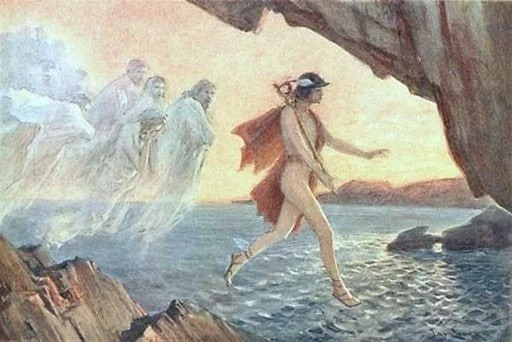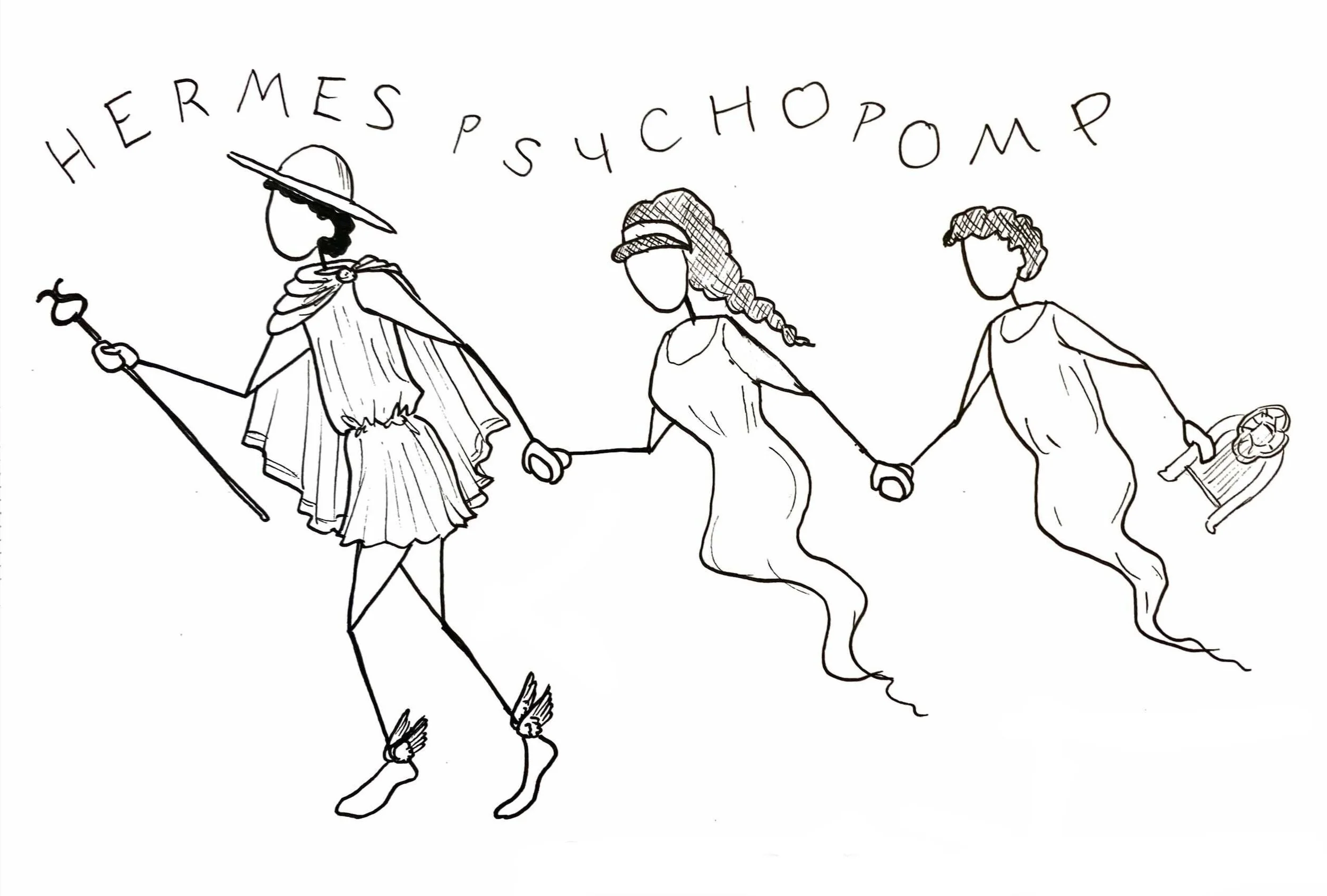Counselling as a Psychopomp
What is a Psychopomp? Originally derived from the greek word psuchopompos, a psychopomp is a “guide of souls”. I like this phrase in relation to counselling, and supporting others through some of the most painful phases of their lives, perhaps even a form of personal (metaphorical) hell.
A “guide of souls” refers to someone who guides the deceased to their new existence. Someone to help them make the transition from their raw, physical state into a more spiritual and mature being. It’s a comforting thought, of having someone with you to help guide you the transitions and through various hells of anxiety and panic, and the fogginess of prolonged grief and depression.
Hermes and Hecate guiding Persephone out of the underworld
- Terracotta bell-krater, attributed to the Persephone Painter, c. 440 B.C.E. via MoMa, New York
The role of a psychopomp is found throughout world cultures, and across time and history. There are mentioned of psychopomps in Africa (from Ancient Egypt to modern Zimbabwe); in the Americas, from the Aztecs in the South to the Inuit in the North and in Asia, Europe and Polynesia.
Psychopomps also appear in a variety of religions from Buddhism to Zoroastrianism. Some death escorts are depicted as human spirits, such as images of Hermes on Greek funerary vessels. In other cultures, psychopomps are depicted as ravens, crows, jackals, wolves, banshees, or large, black dogs.
Psychopomps across the world - (left to right) Hermes (Greek), Turkey Vultures (Asia and the Americas), Death Butterflies (Mexican), Set (Egyptian), Hecate (Greek)
A “Psychopomp” compared to a “Grim Reaper”
What’s the difference between a grim reaper and a psychopomp? In literature and world mythology, both are spiritual entities that assist the soul to cross over to the afterlife, but their intent and approaches may be seen quite differently.
Counsellors as Psychopomps:
patiently wait to support those who are lost or confused about their endings (eg: in death, in phases of life, in the hell of addictions or intense emotions)
act as guides and escorts between planes (and phases of life)
bring comfort, solace, and hope to those in pain and feeling trapped.
Psychopomps are guides and guardians, they represent all the hope, love, and spiritual comfort that people hope for in the dark times.
Grim Reaper imagery:
Mythologically considered the personification of death; take or end lives themselves
escort souls to the afterlife, primarily associated with the underworld
often identified with Halloween and presented as frightening figures or demons
in some stories, they bring fear, regret, and despair to those they interact with
Grim reapers represents all the fears of the unknown that people still harbour about death, dying, and the afterlife, whether literal or metaphorical. While interactions with a “grim reaper” figure may be powerful and help cut away unneeded habits or ways of living, they’re also dramatic, imposing and absolute. There is no room to debate or discuss with a grim reaper figure (or event).
In contrast, psychopomps counter one’s fears and try to ease the trauma of these transitions. Psychopomps can teach one that death (literal or metaphorical) is a new beginning, not necessarily a fearsome or pain-filled event.
For those who are terrified of dying, ending and relationships dissolving, they may need guidance to understand that the experience of endings and dying isn’t always something to fear, but another, unknown part of life that may allow you to re-define who and what you are, when you’re ready.








